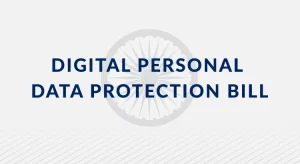
Nevada Privacy Law Compliance
What Is the Nevada Privacy Law?
The Nevada privacy law, which took effect Oct. 1, 2019, requires companies to provide consumers with the right to opt-out of the sale of their personal information. The law defines personal information as any data that identifies, relates to, or could be linked to an individual, including names, addresses, phone numbers, email addresses, social security numbers, and biometric data.
The law requires companies to provide a clear and obvious opt-out mechanism on their website, allowing consumers to refuse to sell their personal information. Once a consumer opts-out, the company must stop selling their data and cannot discriminate against them in any way. By giving the right to opt-out of data sales, the law ensures that businesses cannot profit from their personal information without their consent.
Who Must Comply with the Nevada Privacy Law?
The Nevada privacy law applies to any business that collects and sells personal information of Nevada residents, regardless of where the business is located. This means that businesses located outside of Nevada must comply with the law if they collect and sell personal information of Nevada residents. Overall, any business that collects and sells personal information of Nevada residents should be aware of this law and take steps to ensure compliance.
The Importance of Adhering to the Nevada Privacy Law
The law helps to protect consumers from the risks of data breaches and identity theft. By regulating how businesses collect and use personal information, the law makes it more difficult for attackers to access and misuse that data.
In addition, the Nevada privacy law sets a precedent for other states to follow. As more states pass their own privacy laws, businesses will have to comply with a patchwork of regulations, making it more difficult for them to operate.
Adhering to the Nevada privacy law is important for several reasons:
- To protect consumer privacy. By adhering to the law, businesses demonstrate their commitment to protecting their customers’ personal information. This helps build customer trust and loyalty, which can be valuable for long-term business success.
- To avoid penalties. Non-compliance with the Nevada privacy law can result in significant penalties, including fines and legal action by the Attorney General’s office. If a business is found to be in violation, it can be fined up to $5,000 for each violation. Additionally, the Attorney General’s office can seek an injunction to prevent further violations of the law.
- To protect business reputation. Privacy breaches can be damaging to a business’s reputation. By adhering to the Nevada privacy law, businesses can protect their reputation and avoid negative publicity that can come from a privacy breach.
Comparison of the Nevada Privacy Law with Other Security Standards
While the Nevada privacy law is a state-specific law, it has similarities and differences with other popular security standards such as GDPR and CCPA.
GDPR (General Data Protection Regulation) applies to any organization that processes the personal data of EU residents, regardless of where the organization is located. Like the Nevada privacy law, the GDPR gives individuals the right to access and control their personal data. It also requires organizations to obtain consent before processing personal data. The GDPR also includes a “right to be forgotten,” which allows individuals to request that their personal data be deleted. Additionally, the GDPR imposes significantly higher fines for non-compliance than the Nevada privacy law.
The CCPA (California Consumer Privacy Act) applies to businesses that collect the personal information of California residents and is similar to the Nevada privacy law. Both laws give individuals the right to control their personal data and require businesses to provide an opt-out mechanism for the sale of personal data. However, the CCPA includes additional provisions, such as a right to data portability and a right to non-discrimination.
The Nevada privacy law also has some unique provisions. It requires businesses to provide consumers with a specific email address through which they can exercise their opt-out rights, and it has a narrower definition of personal information than the CCPA. Unlike the GDPR, the Nevada privacy law does not apply to all businesses that process personal data, but only to those that meet specific criteria.
DataSunrise Solutions for the Nevada Privacy Law Compliance
DataSunrise helps you control, automate and administrate the Nevada privacy law with the Database Regulatory Compliance tool. DataSunrise offers comprehensive data security solutions to identify personal information and access sensitive data, ensure ongoing monitoring and compliance reporting, enforce data retention policies, provide audit trails, and stay up-to-date with regulations for both SQL and NoSQL databases. By implementing these measures, businesses can protect customers’ privacy and avoid penalties for non-compliance.
